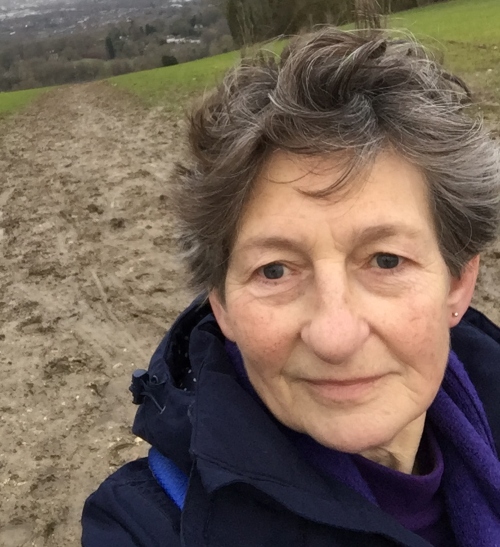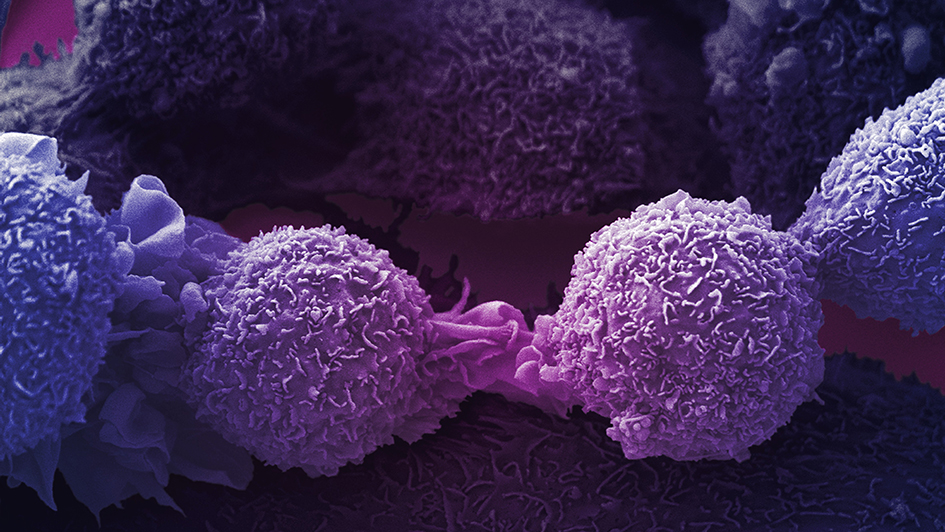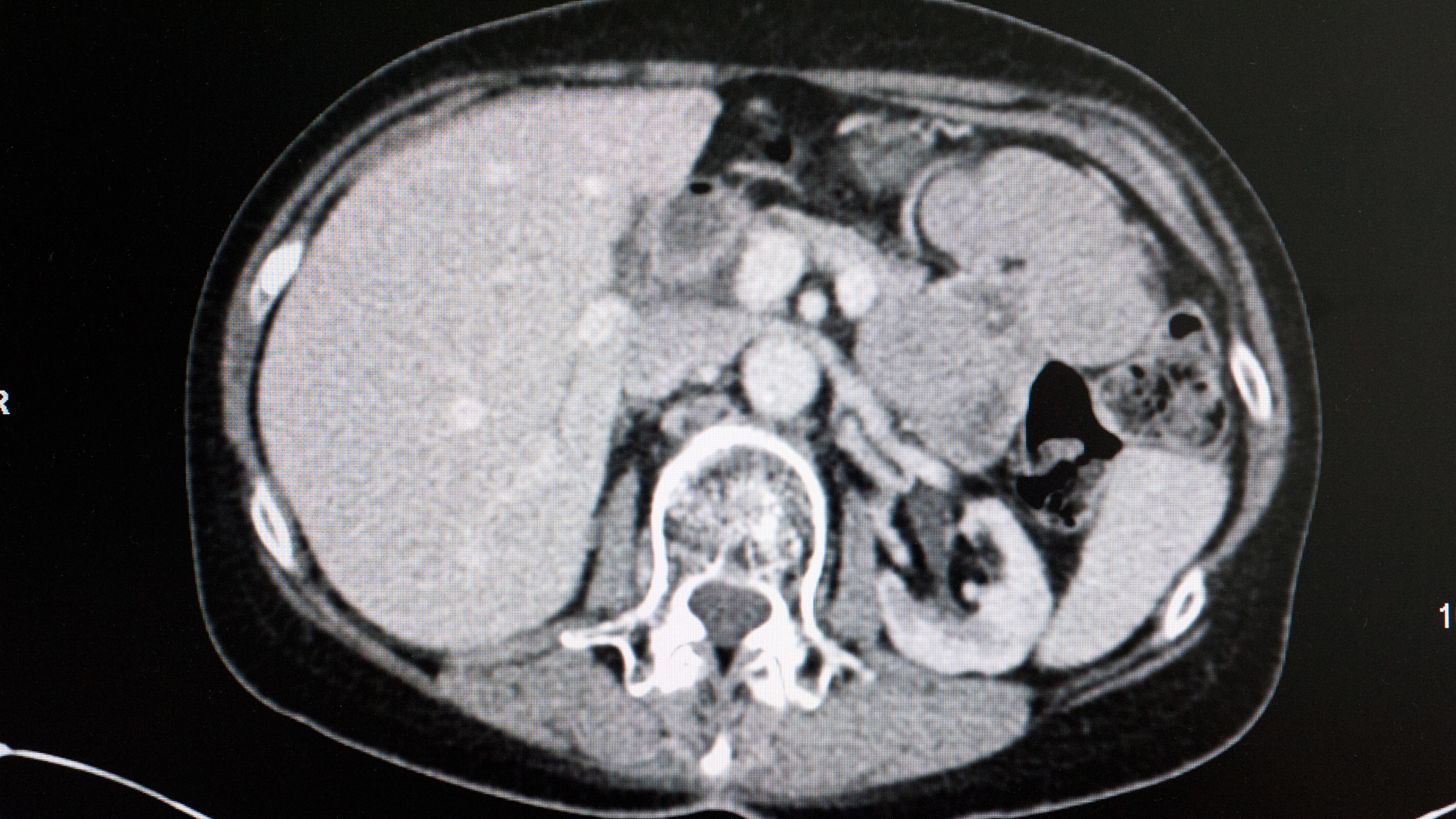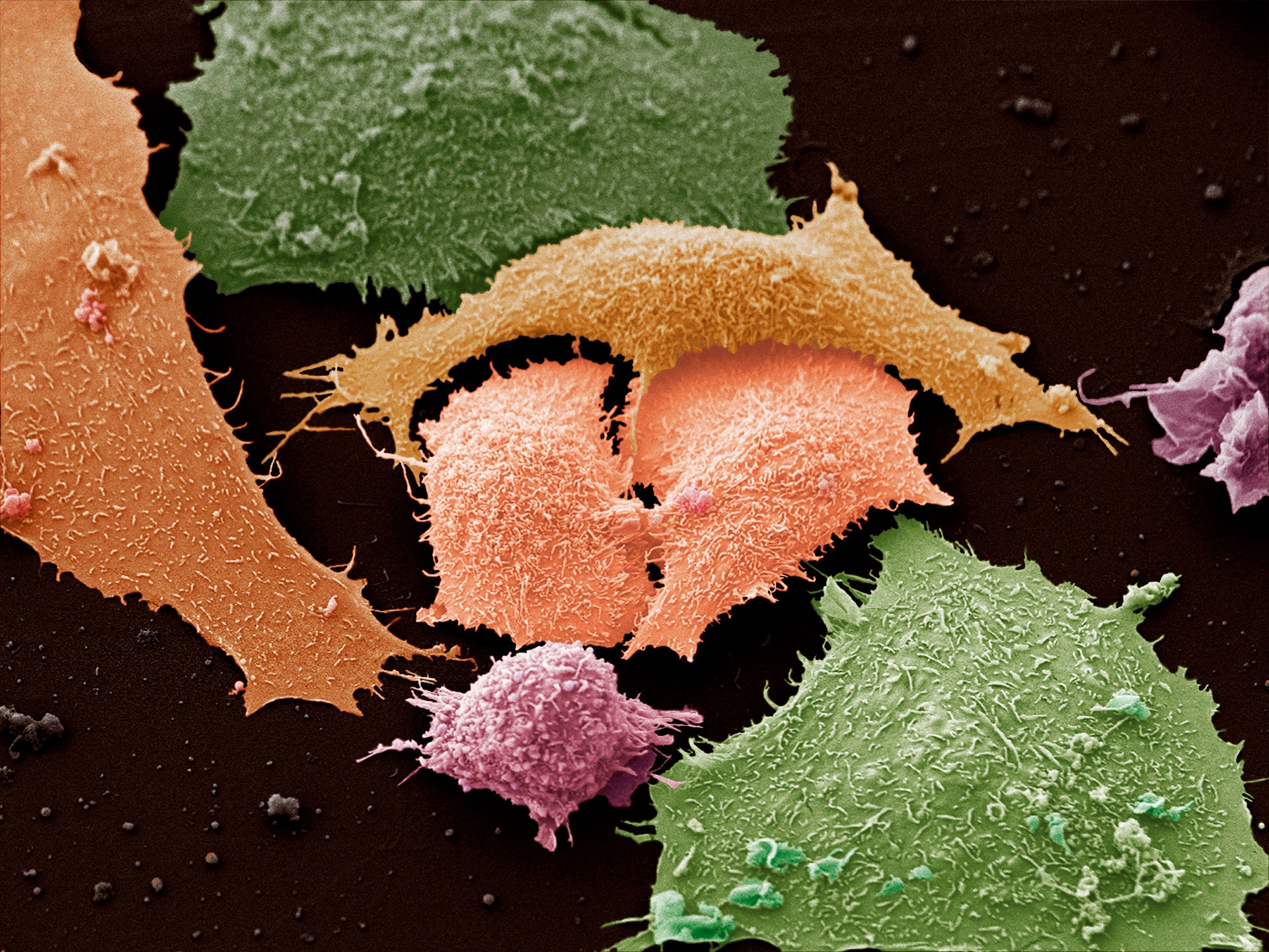Our research into lung cancer
Lung cancer is the biggest cancer killer worldwide, accounting for 20 per cent of cancer deaths. Our scientists are using genetics and artificial intelligence to help identify those at risk, develop treatment and improve patient prospects.
Image: Lung cancer cells, Image credit: Anne Weston
Our progress against lung cancer
Genetics
Our researchers have led studies analysing the genomes of both lung cancer patients and healthy people to pinpoint the genes that predict lung cancer.
For example, Professor Jyoti Choudhary worked on the most comprehensive study to date of lung cancer in non-smokers. It showed that lung cancer in non-smokers is a distinct disease from that in smokers, and is likely to respond differently to treatments.
We also helped identify parts of the genome that put smokers at greater risk of getting lung cancer, as well as determining the type of lung cancer that might develop.
Links to breast cancer
Our researchers have uncovered connections between lung cancer and breast cancer that shed light on how the diseases work and how to treat them.
A study led by geneticist Professor Richard Houlston, for example, was the first to link lung cancer with defective copies of the BRCA2 gene. Professor Chris Lord also headed a study that found the lung cancer drug critzotinib can be used to target breast cancers with a specific genetic defect.

"I was diagnosed with stage 4 lung cancer in 2016, but thanks to research advances, nothing much has changed since then. I have always felt well, and I still do. Being on targeted treatment has kept me fit, healthy and symptom-free for which I am so grateful. Cancer is just part of my life now".
– Doreen McGinley
Drug resistance
Lung cancer tumours can develop resistance to drugs, a key hurdle to a patient’s full recovery.
Dr Paul Huang’s group is investigating this by identifying key resistance mechanisms and signalling pathways in lung cancer. They are also getting clues for long-lasting therapies from patients who respond well to treatment.
We are also using artificial intelligence to explore how lung cancer evolves to develop drug resistance. For example, Professor Janet Shipley's group trained an AI to distinguish between immune cells and lung cancer cells. This could become a new way to predict which patients are at higher risk of relapse.
Immunotherapy
Our immunotherapy experts are aiming to develop personalised treatments for lung cancer patients, such as CAR T cell therapy – a complex but highly effective treatment tailored to each patient that reprograms their immune system to fight the disease.
Your support helps
Please donate today to help more people survive lung cancer. As a UK charity, our life-saving research relies on the generosity of individuals and organisations. Our supporters help us make a difference to the lives of cancer patients and their families everywhere.
Lung cancer discoveries

New drug shows dramatic effect in shrinking lung cancer tumours

